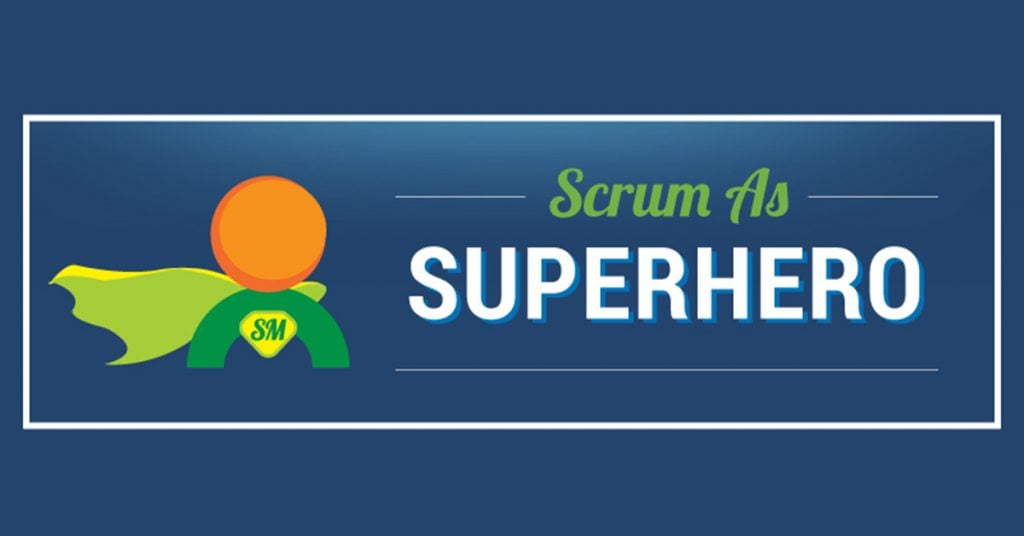Posts Tagged ‘scrum training’
Your Ticket Out Of Crazy Town:
How Scrum’s ‘Guardrails’ Protect Teams From Chaos
As we stated before, Scrum is for developing in Complicated/Complex environments. This ties nicely to the Cynefin (ku-NEV-in) framework, which breaks Decision-Space into four areas: Clear, Complicated, Complex, and Chaotic. The detailed definitions aren’t important to us right now; the only thing we need to know is that Chaos is very bad. Chaos makes things…
Read MoreWhat Do You Do When You Finish a Sprint Early?
So, let me talk about the easy stuff first. One of the best things that can happen to a Scrum Team is that it finishes its work early in a Sprint. It amazes me that Teams are confused about what to do, but they are. So here goes… If the Team finishes early, it seems to me there are two choices:
Read More3 Undeniable Reasons To Get Your ScrumMaster Certification Now
Let’s face it, you’re really busy. So, the idea of taking time out of your crazy work day to get a certification may make you ponder, “Is this really worth it? Will it help me do my job better?” If this is what comes to your mind about becoming a Certified ScrumMaster (CSM), don’t feel bad. Critically walking through the “why should I do this?” argument is time well spent. So is getting your ScrumMaster Certification. Here are some important reasons why.
Read MoreTop 10 Tips To Becoming A Better PO
Seasoned PO’s (Product Owners) share a certain kinship bred from their time spent navigating the PO world; a world full of balancing, prioritizing and clarifying. We decided to capture their PO knowledge and ask them, “What do you know now that you wish you had known when you were a new PO?” From this question came a glut of useful, real-world tips that we offer to you. We present to you, our top 10 tips to becoming a better PO.
Read MoreScrum as Superhero
Once upon a time, there was a company. A large, multi-layered organization ordered with the task of developing and launching new software. And not just any software. Complex software, unlike anything the organization or the public at large had seen, or used, before. The new software carried with it a set-in-stone launch deadline. The pressure was immediately on to go live. And not just go live in one small testing site; rather, to roll out the software and go live everywhere at the same time…
Read MoreTo Build Trust, Risk Being Candid
Search Google Books on trust and candor and the first listings you’ll get are business examples. Why? Because for a Team to respond agilely, we need to be candid with each other and have a basic trust in each other. Naturally, we’ve all experienced being on a Team where this wasn’t the case, and our whole Team was held back as a result.
Read MoreThe PO and SM: A Match Made in Agile
Every year as the middle of February approaches, our world is taken over by little red hearts, cherubic cupids hoisting arrows and foil wrapped drugstore chocolates. The heavily scented fragrance of Valentine’s Day is in the air. For us at 3Back, even though the holiday has come and gone, our thoughts turn to partnerships that stand the test of time; a Scrummy yin and yang where complementary forces interact to create something great. We think we found it.
Read MoreSHHHHH!!! 5 Ways to Quiet Organizational Noise
Throughout our day, we experience an inordinate amount of noise. Whether it’s the garbage truck barreling down our road at 5 am, the dog that excitedly greets every passerby or the co-worker’s emphatic phone conversations on the other side of the paper-thin cubicle wall, noise is everywhere.
Read MoreWhen Should You Start a Sprint? When Should You Finish?
Starting. It’s on all of our minds as we work through the first week of the new year. The concept of starting brings to mind one of the most frequently asked questions I receive when I am both training and coaching. When should you start a Sprint? And, the question’s inevitable counterpart, when should you finish a Sprint?
Read MoreReawakening Retros: Good Habits Versus Bad Routines
“We had a few good Retrospectives, but they stopped working;” “I don’t know what the point of this is anymore;” “Maybe this Retro thing was a good idea once, but we need to try something else.” “Can we just finish this so we can get back to work?” These are the kinds of things we say when a repeating process like Team Retrospectives, that used to work or maybe seemed to work once, has stopped feeling useful.
Read MoreThe One Thing Your Professional Development Might Be Missing
As Agility Instructors and Coaches, we find ourselves in many different learning situations. Each of these learning situations brings participants with varying needs and perceptions about their upcoming training. We frequently encounter participants who feel they have been “sent to training as punishment.” Understandably, their attitude in the classroom reflects these feelings.These participants are resentful of their “forced” attendance, and grumble through training closed off to the possibility of acquiring new skills, expanding their knowledge base, and improving their performance. A missed opportunity…
Read MoreScrum Needs No Apologists
An apologist is defined as someone offering a defense of something controversial. Since its introduction and emergence as a framework within which a group of individuals can cohere and collaborate as a real Team and empirically apply the opening statement of the Agile Manifesto “we are uncovering better ways… ”; Scrum has attracted both detractors and the aforementioned apologists. I have just one question for the apologists, “Why?”
Read More






